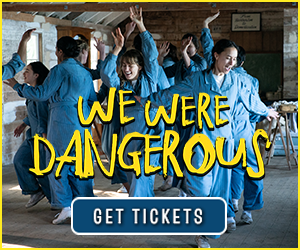THE STORY – After living life on the edge in London, Rona attempts to come to terms with her troubled past. She returns to the wild beauty of Scotland’s Orkney Islands — where she grew up — hoping to heal. Adapted from the bestselling memoir by Amy Liptrot.
THE CAST – Saoirse Ronan, Paapa Essiedu, Stephen Dillane & Saskia Reeves
THE TEAM – Nora Fingscheidt (Director/Writer) & Amy Liptrot (Writer)
THE RUNNING TIME – 118 Minutes
Something is daunting about the idea of watching a film about a person struggling with addiction. While they’re often inspiring, these types of films are usually intentionally difficult to get through and especially frustrating to watch if an individual makes the same mistakes repeatedly. In “The Outrun,” the new film by director Nora Fingscheidt, based on Amy Liptrot’s memoir, this repetitive pattern is depicted with freshness and in service of the ultimate message that the only way to break an unwanted cycle is to invest fully in one’s truth. Led by Saoirse Ronan in her most difficult role yet, the film is moving and, ultimately, incredibly uplifting.
Ronan plays Rona, a young biologist who plunges into alcoholism while living and working in London. Her hard-partying nights eventually culminate in a violent encounter, leading to her entering a rigorous rehab facility. At the end of her program, she returns to her hometown to live with her mother. Hoping this fresh start will kick off a new chapter of her life, Rona finds that her path to consistent sobriety may not be as steady as she hopes.
It’s impossible to discuss this film without it beginning and ending with Ronan. It’s nothing revelatory or new to say that, with four Oscar nominations to her name at only 29 years old, she’s one of the most gifted young actors of our time. In a way, Rona is practically a culmination of all the types of characters that Ronan has previously portrayed and received praise for. She’s deceptive and cunning, like the young Briony in “Atonement”; she’s outwardly emotional and sympathetic, like Eilis in “Brooklyn“; she’s selfish and impulsive, like the titular role of “Lady Bird“; she’s headstrong and independent, like Jo in “Little Women.” Rona is a deep well of conflicting, contradicting, and complementary characteristics. Ronan has the experience and the ability to portray all aspects of her with respect, care, and a compelling energy that keeps audiences invested. She’s simply perfect for the role.
In a film about an alcoholic, it’s a given that the actor portraying said character would have to perform a lot of drunk scenes. This is simply one of the hardest things an actor can be asked to do, as it’s very easy to overplay inebriation. Ronan is, unsurprisingly, up to the task. The film opens with a scene of her at her most drunk, almost as if to get the worst of the audience’s expectations out of the way. Throughout the film, we see flashes of her lowest moments, and Ronan is never over-the-top or at an inappropriate level. She hardly ever slurs her words, which smartly has the effect of making the character seem even more destructive when she’s drunk because the unfairly mean and nasty things she says to her loved ones sound coherent.
The structure of “The Outrun” is purposefully tiring. For many, it may simply frustrate to watch Rona quite literally stumble into and out of sobriety. But that repetitive nature is undeniably truthful, and what this film does better than most is show how the journey to clarity is far from straightforward. Indeed, the very things that may seem to be the most helpful – such as Rona’s return to her childhood home – may be just the opposite.
The film has a pleasing look, thanks in large part to the pastoral Northern Scottish Isles locations. The landscape is gentle and violent, with waves crashing against the shores home to docile sheep and birds. This imagery symbolically reflects Rona, a person who contains both the sunniest summer days and the most cataclysmic thunderstorms in her soul.
Nora Fingscheidt takes an understated approach to the direction in a way that eventually pays off in a moving climactic montage of the disparate images that came before. What becomes clear at that moment is that Fingscheidt has been building a film of varying shots, locations, and cinematographic styles with one shared quality: they all center around Rona. No matter where she is, what color her hair is, who she’s associating with, or what state she’s in, she’s the single most consistent element in her own life. “The Outrun” makes it clear that the only thing we can control is our own actions, no matter what surrounds us, and reaching that moment of self-actualization is the best way out of the depths.
Still, the film will certainly not speak to everyone. For those who’ve been on similar journeys, it will undoubtedly resonate. As someone who’s had less dramatic but similar experiences to Rona, it’s frankly impossible for me to separate my personal experiences from my reaction to the film. But isn’t that what art is for? The best works speak to those experiencing them in a way that forces them to reflect upon their own life and discover a new perspective, and “The Outrun” does exactly that.






